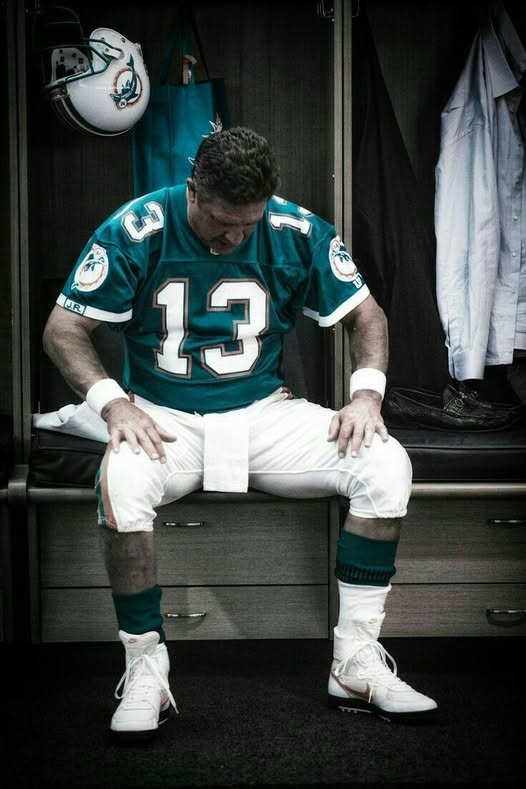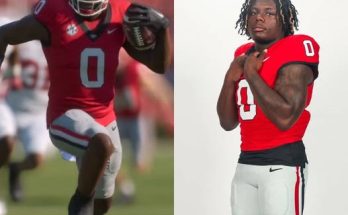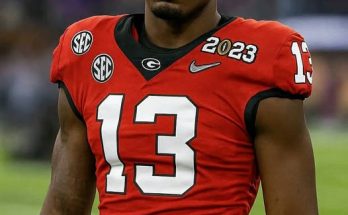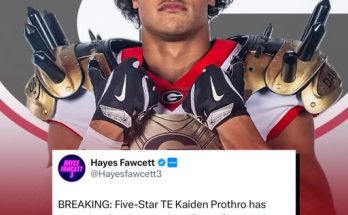When discussing the greatest quarterbacks in NFL history, the conversation invariably includes the name Dan Marino. Known for his lightning-quick release, uncanny field vision, and a cannon for an arm, Marino redefined what it meant to be a franchise quarterback. Though he never won a Super Bowl, his impact on the game, the Miami Dolphins, and the broader landscape of professional football is immeasurable. Over 17 seasons, Marino set records that stood for decades, establishing himself as one of the NFL’s most iconic figures.
The Road to the NFL: Pittsburgh Roots
Dan Marino’s football journey began in the steel city of Pittsburgh, Pennsylvania. Born on September 15, 1961, Marino grew up in a working-class neighborhood where grit, determination, and blue-collar values shaped his identity. A standout athlete at Central Catholic High School, Marino was recruited by dozens of top-tier college programs. He chose to stay close to home and play for the University of Pittsburgh, where he quickly emerged as a star.
At Pitt, Marino showcased the attributes that would define his NFL career—poise in the pocket, pinpoint accuracy, and a gunslinger mentality. In his junior season, he led the Panthers to an 11-1 record and a Sugar Bowl victory, cementing his status as a top quarterback prospect. Despite a somewhat uneven senior season, Marino entered the 1983 NFL Draft with high expectations.
Draft Day Drama and Miami’s Fortune
The 1983 NFL Draft is still regarded as one of the most talent-rich quarterback classes in league history, featuring the likes of John Elway, Jim Kelly, and Tony Eason. Yet, surprisingly, Marino fell to the 27th overall pick—allegedly due to rumors of off-field issues and a poor final college season. The Miami Dolphins, led by legendary head coach Don Shula, seized the opportunity and selected Marino with the final pick of the first round.
It turned out to be one of the greatest steals in draft history.
Rookie Sensation and Rapid Ascension
Marino didn’t start immediately in his rookie year, but once he took the field, it was clear Miami had found its quarterback of the future. He started nine games in 1983, throwing for 2,210 yards and 20 touchdowns with just six interceptions. His quick release and decision-making stunned defenses and delighted fans. Marino earned a Pro Bowl selection as a rookie—an early sign of what was to come.
His second season was nothing short of legendary. In 1984, Marino rewrote the record books. He threw for a then-unprecedented 5,084 yards and 48 touchdowns, shattering existing records and setting a new bar for passing excellence. The Dolphins finished the regular season 14-2, and Marino was named the NFL MVP.
Miami surged through the playoffs and reached Super Bowl XIX, but they ran into Joe Montana and the San Francisco 49ers. Despite Marino’s heroics, the Dolphins fell 38-16. It would be Marino’s only Super Bowl appearance, a fact that would haunt him and his supporters despite a career filled with brilliance.
Setting the Standard for Quarterback Play
Throughout the 1980s and early 1990s, Marino continued to post eye-popping statistics. His combination of arm strength, anticipation, and release speed made him a nightmare for opposing defenses. At a time when NFL rules were not yet as favorable to pass-happy offenses as they are today, Marino made throwing for 4,000 yards seem routine.
By the time he retired after the 1999 season, Marino held more than 40 NFL single-season and career passing records, including:
- Career passing yards: 61,361
- Career touchdown passes: 420
- Most 4,000-yard passing seasons: 6
- Most games with 400+ yards passing: 13
While these records have since been eclipsed by quarterbacks like Peyton Manning, Drew Brees, and Tom Brady, Marino set the foundation for the modern passing era.
Leadership and Loyalty in South Florida
What made Marino unique wasn’t just his numbers—it was his unwavering loyalty to the Dolphins and his fierce competitiveness. In an era when players often moved teams or chased rings, Marino stayed with Miami for his entire 17-season career. His commitment to the franchise and the city of Miami endeared him to generations of fans.
Despite the lack of a strong running game or elite defenses during much of his tenure, Marino consistently carried the Dolphins to the playoffs. He led Miami to 10 postseason appearances, compiling a starting record of 147-93—an impressive feat considering the lack of balance on many of those teams.
Teammates and coaches often praised Marino for his football IQ and command of the huddle. He had a coach-on-the-field mentality and a reputation for being demanding—but fair—with those around him. His fiery attitude and relentless pursuit of perfection defined the Dolphins’ identity during his era.
Injuries and the Final Years
The 1990s brought challenges for Marino, including injuries and an evolving league that saw more mobile quarterbacks gaining prominence. In 1993, Marino suffered a torn Achilles tendon, a devastating injury that could have ended many careers. But in classic Marino fashion, he returned the following year and threw for over 4,400 yards.
Still, the Dolphins struggled to regain their dominance. The final years of Marino’s career were marked by playoff disappointments and diminishing team success. In 1999, after a humiliating 62-7 playoff loss to the Jacksonville Jaguars, Marino decided to retire.
Though his final years lacked the fireworks of his prime, Marino left the game with a legacy cemented in greatness.
The Hall of Fame and Continued Influence
In 2005, Dan Marino was inducted into the Pro Football Hall of Fame on his first ballot—a no-brainer for voters and fans alike. His enshrinement was a celebration of a career that, while ringless, was undeniably remarkable.
“I know I never won a Super Bowl, but I damn sure gave it everything I had,” Marino said during his induction speech, a moment that resonated with fans who recognized his heart, commitment, and contribution to the sport.
Since retiring, Marino has remained connected to the Dolphins organization. In 2014, he was named a Special Advisor to the President and CEO of the Miami Dolphins, a role that allows him to mentor young players and provide insight on football operations. His presence is a stabilizing and inspirational force in a franchise seeking to rediscover its past glory.
A Legacy Beyond the Game
Dan Marino’s influence goes beyond stats and accolades. He helped usher in a new era of quarterbacking—one where passing was no longer merely a component of offense but its central focus. Young quarterbacks today, from Patrick Mahomes to Joe Burrow, operate in a world shaped by Marino’s groundbreaking play.
Off the field, Marino has also left a lasting mark. Following the birth of his son Michael, who has autism, Marino and his wife Claire founded the Dan Marino Foundation in 1992. The foundation has raised millions of dollars to support individuals with autism and developmental disabilities, helping provide vocational training, education, and resources to thousands of families.
Through this philanthropic work, Marino has shown that leadership isn’t just measured on the field—it’s about creating a better future for others.
The Greatest Without a Ring?
The debate about Marino’s legacy often returns to the absence of a Super Bowl ring. In a league that values championships above all else, some critics diminish his achievements. But those who truly understand football know that Marino’s lack of a title says more about the teams around him than it does about his own brilliance.
Marino carried Miami year after year, often without the benefit of a dominant defense or reliable running game. He wasn’t just good—he was transformative. His ability to control a game with his arm and his mind was unparalleled.
Hall of Fame coach Bill Walsh once said of Marino, “If you’re talking about pure passing ability, there’s nobody better—not Elway, not Montana. Nobody threw it like Dan Marino.



